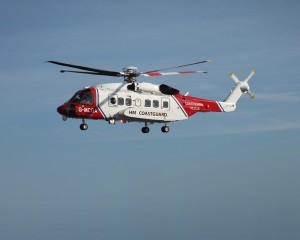Starmer Confident Aukus Pact Will Proceed Despite Trump Review
By Ellen Milligan Jun 15, 2025 (Bloomberg) –UK Prime Minister Keir Starmer said he has no doubts that the Aukus defense pact with the US and Australia will continue despite President...

Bristow Helicopters Limited awarded 1.6 Billion pound contract to provide SAR to the U.K. (Photo: Bristow Group)
The U.S. Bristow Group announced today that the United Kingdom has awarded its British affiliate a new contract to provide civilian Search and Rescue services for the entire U.K. Beginning in 2015, Bristow will begin the transition across Britain from the twelve RAF-run bases to ten wholly operated by British Helicopters Limited. The contract allows for 22 new aircraft spread across the ten bases (two for each) and two training helicopters available for support. I’ve been getting emails about it all day.
Bristow had been previously awarded a “Gap” SAR services contract beginning in July of this year, so if you find yourself calling in for a rescue off northern Scotland later this year, don’t be surprised to see a shiny new red and white helicopter hovering over your stern. The familiar RAF yellow Sea King is on the way out, along with Prince William and his friends. While those of you most directly affected by the change (and the 1.6 billion pound price tag) argue over the benefits (or not) of the privatization of search and rescue – I’m left wondering if it will work.
Contract search and rescue is nothing new, of course, and this isn’t Bristow’s first rescue contract, but it is definitely the largest and broadest SAR contract of its kind. Bristow (and others like VIH Cougar) have been providing offshore and remote rescue services to the oil and gas companies of the world for awhile now. But while handing over all helicopter operations to a contractor on such a large scale is a new experiment, it isn’t something that hasn’t been discussed.
Personally, I always thought the limit would be liability insurance. Governments are protected from litigation in a number of ways from both the rescued and rescuers alike. I would never have considered suing my employer (the U.S. Coast Guard) for damages when my otherwise good friend got distracted and hoisted my head into the ceiling of our Sikorsky H-60 during a training mission. I’m told I have a bulging disc in my cervical spine – but hey, that’s why they called it “service” and I get the discount at the local hardware store, right? I wonder if part of that 1.6 billion includes a team of lawyers to stand by when the first couple they rescue from a ketch sue them for pulling out the husband’s hip during the hoist?
However, there may be some real advantages to full-blown contract SAR for a nation. Apparently, the British government found that one is saving money. The contract price is apparently less than the expected cost of buying 22 of their own new helicopters and paying all those government salaries (and retirements, like mine) to keep them operating. But are there others? I think there might be, and while many I’ve spoken to this afternoon believe it’s a world gone mad, I’m holding out judgment until at least the first couple of years of full operation because there may be value in the stability.
Call Mayday off southern California and the crew that comes to look for you may be made up of four guys who have fewer than two years flying over those waters. The crew will have a mix of experience and at least one of the crew will be an experienced flyer from a previous unit, but every four years in the U.S. Coast Guard, everyone has to transfer. A full quarter of a military-operated search and rescue unit leaves every year, and a mix of new operators (from other units and a few fresh out of school) take their place. It’s a function of military rotation.
Who would you rather have flying you back through the fog on a stormy night: a newly-qualified pilot on his eighth search and rescue mission, or a seven-year veteran who has made that same stormy approach to the same home base hundreds of times? Bristow will have the ability to put aircrews together and keep them together for years. Trust me, I’ve been there – unit cohesion and personal dynamics can matter a great deal. If I could hand-pick the best search and rescue team available in the U.S., I really couldn’t. They may be at different units, no longer available, or forced into retirement due to advancement issues unrelated to their abilities. A profit-driven organization can set their own rules. They have the ability to keep the best and dump the rest in a way that a military organization simply cannot.
In the time it’s taken me to write this post I’ve received three more emails from friends asking me to weigh in, and whether I think the U.S. is next in line to privatize search and rescue. I don’t think so – but I’m not ready to cry havoc and say that it is an entirely bad idea. It may actually makes things better. What I do know is that if I ever call Mayday, I won’t care who you send so long as they get me out of there alive. As for the color of the helicopter, paint it pink for all I care. If anyone has any arguments for why the contracting of SAR is a bad idea, I’d love to hear them. After a lifetime on the job, I can’t think of any.

Sign up for gCaptain’s newsletter and never miss an update

Subscribe to gCaptain Daily and stay informed with the latest global maritime and offshore news


Stay informed with the latest maritime and offshore news, delivered daily straight to your inbox
Essential news coupled with the finest maritime content sourced from across the globe.
Sign Up